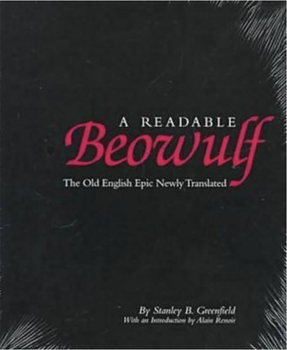A Readable Beowulf: The Old English Epic Newly Translated
Select Format
Select Condition 
Book Overview
Stanley B. Greenfield, one of the world's foremost Anglo-Saxon scholars, writes of why, after more than thirty years of study, he undertook the Herculean task of rendering Beowulf into contemporary verse: "I wanted my translation to be not only faithful to the original but, as the late John Lennon would have put it, 'A Poem in Its Own Write.' I wanted it to 'flow, ' to be easy to read, with the narrative movement of a modern prose story; yet to suggest the rhythmic cadences of the Old English poem. I wanted it both modern and Old English in its reflexes and sensibilities, delighting both the general reader and the Anglo-Saxon specialist. . . . I wanted it to reproduce the intoxication of aural contours which... might have pleased and amused warriors over their cups in the Anglo-Saxon mead-hall, or those monks in Anglo-Saxon monasteries who paid more attention to song and to stories of Ingeld than to the lector and the gospels."
Greenfield has succeeded to a remarkable degree in reaching his goals. An early reviewer of the manuscript, Daniel G. Calder of UCLA, wrote: "I find it the best translation of Beowulf.
One of the great problems with other translations is that they make the reading of Beowulf difficult. Greenfield's translation speeds along with considerable ease. . . Scholars will find the translation fascinating as an exercise in the successful recreating of various aspects of Old English poetic style."





